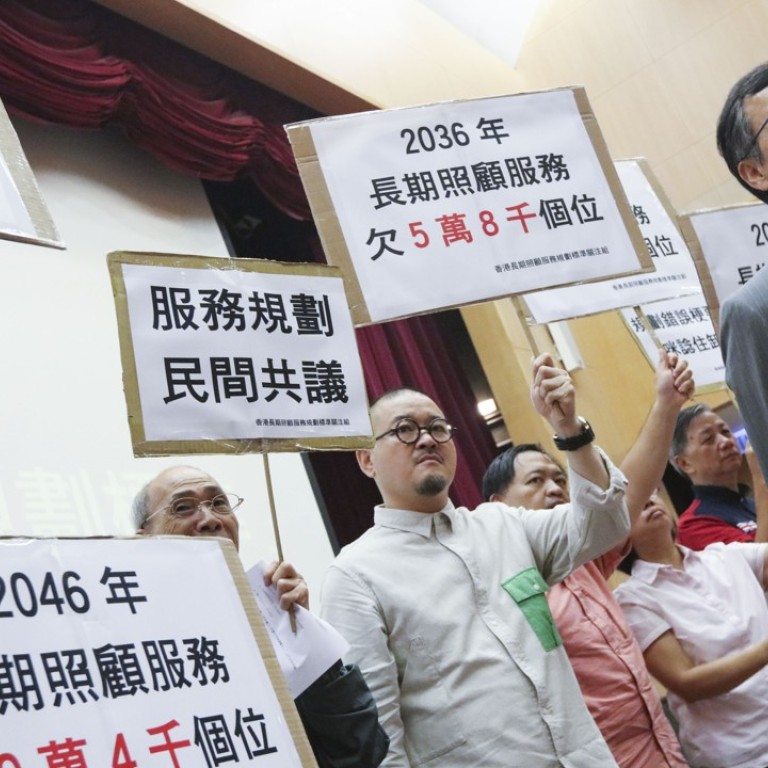
More action needed on Hong Kong’s ageing population, says commission chairman
Lam Ching-choi calls for boost after latest figures show situation even more serious than earlier thought
Hong Kong needs to boost efforts to cope with its rapidly greying population, after new figures showed the situation is even graver than previously thought, Elderly Commission chairman Dr Lam Ching-choi said.
The remarks by Lam, an Executive Council member, came after the latest population projection suggested Hongkongers would live longer, with the number of people aged 65 or above set to double to 2.37 million in two decades.
“The ageing problem is slightly more serious than the original estimate but has not deviated too much with the assessment made by the Elderly Services Programme Plan [ESPP],” Lam said on Saturday, referring to the city’s first master plan for elderly services, unveiled in June.
Flexible elderly friendly designs must be future for Hong Kong’s public sector flats, Housing Society chief says
As the share of Hong Kong’s population over 65 swells, fewer and fewer working-age people need to support more and more old people. The trend is expected to add significantly to health and welfare bills.
“It is a problem to be faced by the whole society but not solely by the ageing care and the medical sectors,” Lam said.
He said the government should look at its housing, planning and transport policies and tweak them to help with the problem.

Raising the retirement age was one possible solution, he added.
Speaking elsewhere, food and health minister Professor Sophia Chan Siu-chee pledged to boost the help available at doctors’ clinics in the face of the ageing trend, which she said was “unstoppable”.
Meanwhile, a concern group of academics and social workers, said the government underestimated older Hongkongers’ need for long-term care services.
They said the authors of the ESPP had wrongly assumed that demand for long-term care for each elderly age group would drop by 1 per cent per year due to people’s improved health and economic status.
New Hong Kong minibuses will cater for the elderly, disabled
According to the group’s calculation, the demand for long-term care last year – including recipients and those on waiting lists – had gone over 71,000 people. The government had only put the number at around 60,000. They said they feared the discrepancy between government estimates and real demand would widen over time, because of the assumption.
A member of the group, Chinese University social work scholar Dr Wong Yu-cheung, said at a forum on long-term care: “One in five of those aged 85 or above are looking for places in subsidised care homes. It is unimaginable that the demand for those aged 85 or above will drop 1 per cent each year.”
Speaking at the same forum, Lam said the ESPP was a “living document” subject to change, while the 1 per cent assumption could also help drive the government to introduce more progressive policy changes.
Possible changes included providing more community care services to allow old people to truly “age in place” – staying at home, rather than going into a care home – and improving primary care for citizens, he said.

